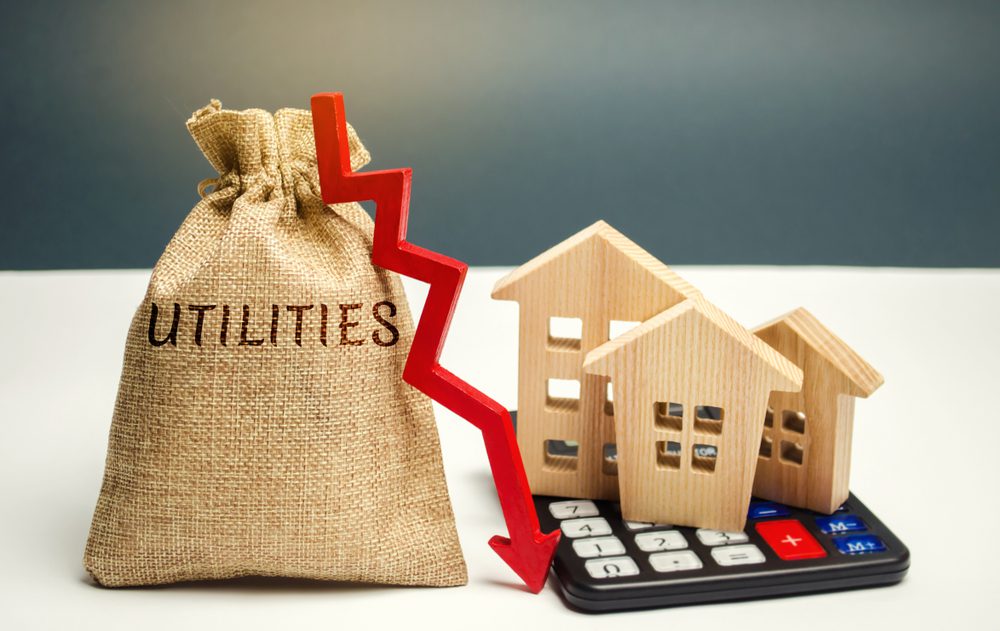As you might have already guessed, President Trump’s trade wars, hugely defined by sweeping tariffs on foreign goods, can have a great influence on everything we purchase, from the cost of basic household items all the way to bigger items.
With the potential for higher tariffs on the horizon, now is the perfect time to reassess your spending habits. We decided to mention 10 essential household expenses you might have to reevaluate in light of these potential trade policies. Now, bear in mind that we need to stay optimistic amidst these times, but also prepared!

Groceries: imported foods could cost more
Tariffs on agricultural products can easily drive up the cost of imported foods such as fruits, vegetables, and other specialty items. To save, you should focus on buying in-season, locally sourced produce, and then explore other alternatives for items affected by these new taxes. We also have a pro tip for you: since uncertainty surrounds the future tariffs and tax rates as well as world politics, focusing on a retirement portfolio is even more so important.
Electronics: the price of gadgets might skyrocket
Trump threatened to raise tariffs on Chinese goods up to 60%. That might have a considerable impact on the price of virtually all imports from China, including electronics, from smartphones to laptops. If you are in the market for a new gadget, consider buying now before additional tariffs are enacted.
Automobiles: you should expect higher prices on new cars
Tariffs on imported auto parts also mean that car manufacturers pass the costs on to consumers. Because in the end, all car companies use some imported parts. If new car prices climb, repairing your old vehicle or buying secondhand might be the smartest financial move you can make.
As a tip, it’s worth noting that repair costs will also skyrocket. If you are deeply concerned about coming up with thousands for a car repair, you should consider the cost and benefit of an extended car warranty.
Home appliances: prepare for price increases
Dishwashers, refrigerators, and any other major appliance often rely on imported components. Tariffs can definitely make such items significantly pricier, so timing your purchase carefully is mandatory. As a tip, we recommend using a home warranty. For instance, First American covers everything from home appliances to electrical, and plumbing, as well as heating and cooling systems. It’s worth taking a look.
Clothing: imported fashion could cost you
The newest taxes on textiles and apparel will definitely impact the price of many imported clothing brands out there. Opting for more domestic brands or simply waiting for sales could definitely offset the costs.
Home improvement supplies: renovations could be much pricier
Whether it’s lumber, steel, or any other materials required in your home improvement projects, they will all face tariffs, driving up the costs even more. You should budget accordingly, especially if you have planned some serious renovations. As an alternative, you can also scale back your plans and wait for a better time.
Toys and baby products: costs might rise for parents
Tariffs on children’s toys and baby products, such as car seats and cribs, can greatly impact young families. You should shop early for various essentials but also take advantage of sales before prices increase even more.
Furniture: higher tariffs might impact your decor
Most furniture is imported, and tariffs can rapidly increase prices on couches and tables. You should consider buying secondhand, or wait for end-of-season clearance sales. As an alternative, you can also buy before higher tariffs hit.
Steel and aluminum products: from bicycles to soda cans
Tariffs on metals are bound to have a huge impact on a wide range of products, such as bikes, cookware, and canned goods. Chinese steal is already subject to 8-12% tariffs, but that can double up anytime. Be prepared for higher prices, and also try to anticipate how small increases can add up to your household budget.
Imported wine and spirits: your happy hour can get pricier
Imported wine, beer, and spirits will also face higher taxes, making happy hours more expensive than they already were. The best thing you can do is consider local brews or domestic wines to keep the costs down.
Plan to beat tariff-driven inflation
Even if Trump’s trade policies are meant to strengthen our economy, they could also create ripple effects that could probably affect your wallet. Planning purchases, knowing when and what to buy, and looking for domestic alternatives can definitely minimize the impact on your household budget.

More about Trump’s new rules
Donald Trump has decided, for now, to pause imposing tariffs on goods from Mexico and Canada after threatening to bring them in on Tuesday. The US president had said tariffs were required to “protect” Americans from the “major threat of illegal aliens and deadly drugs,” which also include fentanyl.
He decided to delay implementing them after a few calls with Canadian Prime Minister Justin Trudeau and Mexican Prime Minister Claudia Sheinbaum. However, President Trump still considers imposing tariffs on EU goods “pretty soon”, suggesting a deal might be “worked out” with the United Kingdom.
He also mentioned he might consider an additional 10% across-the-board tariff on all goods imported into the United States.
What are these tariffs and how do they work?
Tariffs are basically taxes charged on goods imported from different countries. Originally, Trump said he would impose a 25% tariff on goods shipped from Canada and Mexico. So, a product that’s worth $4 would face an additional $1 charge to it.
There can also be a 10% charge on goods imported from China, which is bound to take effect on February 4 at 00:01 EDT, as he stated. But Trudeau confirmed Trump’s proposed tariffs of 25% on Canadian goods, mentioning they will be “paused for a minimum of 30 days while we work together.”
In one of his posts on X, Trudeau explained that Canada plans to implement “a $1.3 billion border plan” to add “new choppers, technology, as well as personnel to the border,” but also “increased resources to stop the flow of fentanyl.”
Why did he threaten with these tariffs in the first place?
President Trump seems to be fulfilling a campaign promise of introducing import duties against some of America’s closest trading partners. Trump also said this could potentially boost US manufacturing.
The tariffs might grow the United States economy, protect jobs, and raise tax revenue, as he argued. Trump also said he is using tariffs not just for economic reasons, but also to “combat the scourge of fentanyl,” which is a powerful drug that causes tons of thousands of overdose deaths in the United States every year.
His administration also says that chemicals used to make this drug come from China and that Mexican gangs supply it on an illegal basis and have fentanyl labs in Canada. Trudeau responded to these statements that less than 1% of fentanyl entering the US comes from Canada.
Which products might be affected?
In Trump’s previous mandate, he applied less restrictive tariffs on China. Well, this time around, the new rules seem to apply to most categories of goods. There is, nevertheless, a carve-out for Canadian energy, which might be tariffed at 10% instead of 25%, if the charge goes ahead after 30 days.
Goods from Mexico like fruit, vegetables, spirits, and beer are also expected to get more expensive if the tariffs ultimately take effect.
If you found this article useful, we also recommend checking: 10 Useful Costco Items New Homeowners Should ALWAYS Buy









